I’m always fascinated by the bees on display at our local agricultural fairs. You know the ones – The honeycomb is placed between two sheets of plexiglass so you can watch the bees work. We always try to find the Queen. Sometimes there are samples of honey to taste, as well as jars of honey and honeycomb candles for sale.
Honey has a long history and quite a resume! Ancient Egyptians made offerings of honey to the gods and used it as embalming fluid. Use of honey has been documented in early Greek, Roman and Islamic texts. Honey’s healing qualities were the subject of ancient philosophers and scientists, including Aristotle.
Today, honey is credited with treating the common cold, healing burns and relieving allergies. But are the claims supported by scientific evidence? After much reading, the answer remains unclear. I did learn about Manuka honey, produced in New Zealand by bees that pollinate the native manuka bush. Recent findings point to the possibility that manuka honey helps in the prevention radiation-induced skin damage in breast cancer patients.
But I digress. Some studies have found that regular honey coats the throat and suppresses coughing. In the laboratory, honey has been shown to hamper the growth of foodborne pathogens, like E. coli and salmonella. And it fights certain bacteria, including Staph, which are fairly common in hospitals and doctors’ offices.
One spring, I was desperate to relieve my allergies. I tried taking a little local honey every day with no improvement.(Although it tasted really good!) Most of us are sensitive to wind borne pollens like grass and ragweed that are not carried by bees and, therefore, not used in making honey. Even if there were allergens in honey, it would be broken down by stomach acid and would not result in an immunological response.
Nutritionally, a tablespoon of honey contains about 64 calories. Some people use it as a source of instant energy. In comparison, a tablespoon of white sugar has about 16 calories. Here’s how it is analyzed. Please note the amounts in the yellow charts – the values are for one cup of honey!
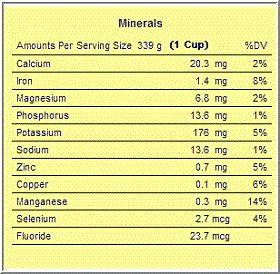
So, is it worth it? It’s largely a matter of personal taste, I think. I like the way it sweetens certain herbal teas. It does feel nice on a sore throat. But most of the health claims appear to be unfounded or based on individual results instead of medical study. Nutritionally, it’s just not worth the carbs to get such small amounts of vitamins and minerals.
It’s worth noting that honey should never be given to children less than a year old because it can lead to Botulism.
That being said, sometimes pairing foods together can enhance something that is good for us. For example, I’m not crazy about bananas. But I try to eat them anyway on because of the nutritional benefits. Here’s an interesting recipe that will let you enjoy the taste of honey while making bananas more palatable.
Fried Honey Bananas
- 2 bananas, peeled and sliced
- 1 tablespoon olive oil
- 2 tablespoons honey
- Cinnamon (to taste)
- Drizzle oil and honey in a skillet or frying pan over medium heat.
- Using a wooden spoon, mix well.
- Add banana slices and cook for up to 2 minutes on each side.
- Remove pan from heat.
- Sprinkle with cinnamon.
(I think this would be delicious with a scoop of vanilla ice cream or as a pancake topping….But, oh, the calories!!!)


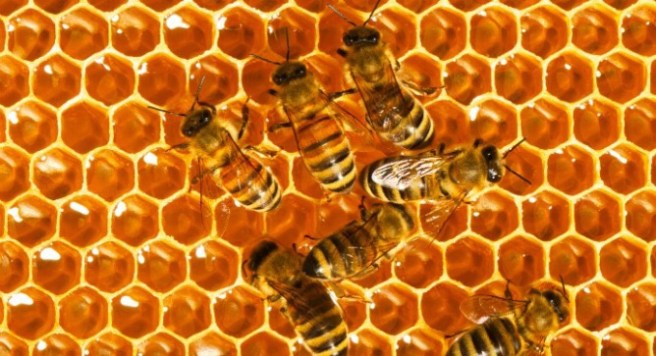
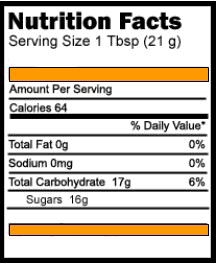
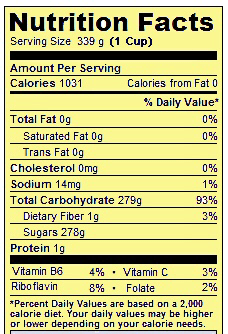
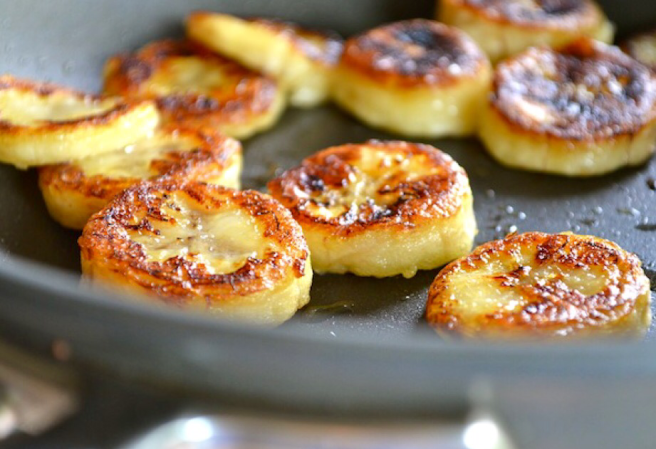
So Babs, Honey is one of my favorite of all time foods! When you say it can treat burns and prevent skin damage in cancer treated patients from radiation…. do you mean by eating it, or applying it to the effected area? (Love your blogs… I look forward to them every day!!!)
LikeLike
By applying it directly to the skin! It apparently creates a barrier to allow healing and may have some antibacterial effect. I think I prefer a bandaid. But the breast cancer lesions from radiation can be horrible for some patients, so that Makuna honey treatment is promising!
LikeLike
That is so interesting. I never thought to use it topically. Mainly because even the smallest amount by accident is relentlessly sticky! You have motivated me to research that further! Our family has entertained the thought of starting a bee hive in our backyard. The boys are convinced it would be amazing… I think so too, but am scared to be stung. You KNOW if someone will get stung, it will be me! I’m also exploring Royal Jelly. I’ve never tasted it, but I think it is the only substance that the queen eats. Sounds like something we should be eating too!
LikeLiked by 1 person
Let me know what you learn!
LikeLike
I use honey every day in my tea😘
LikeLike
Those of us who garden know the importance of bees…..I buy honey as a local crop to use in my coffee and oatmeal and support local hives. I give my older dog bee pollen and swear it has helped with her allergies…
LikeLiked by 1 person